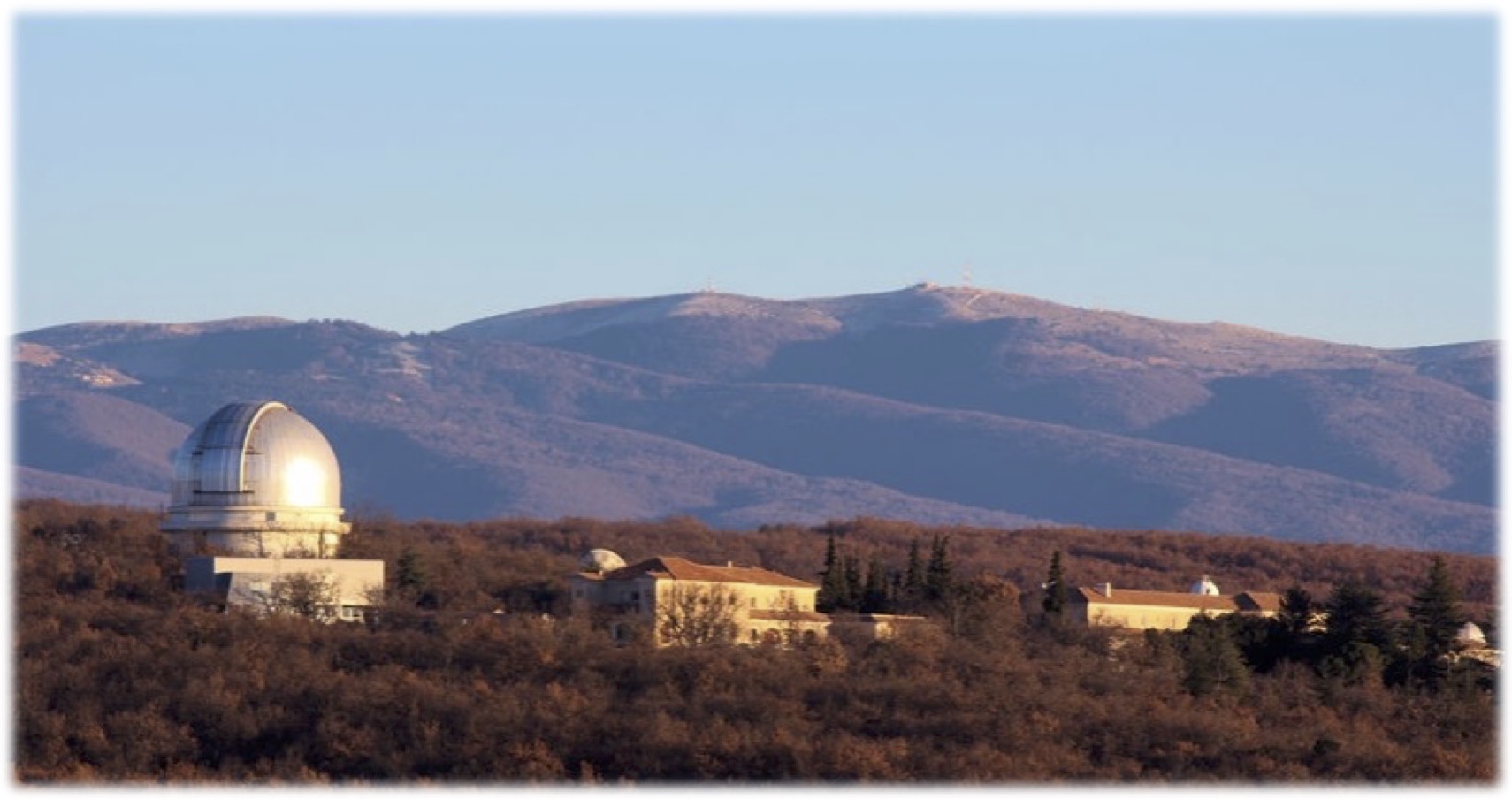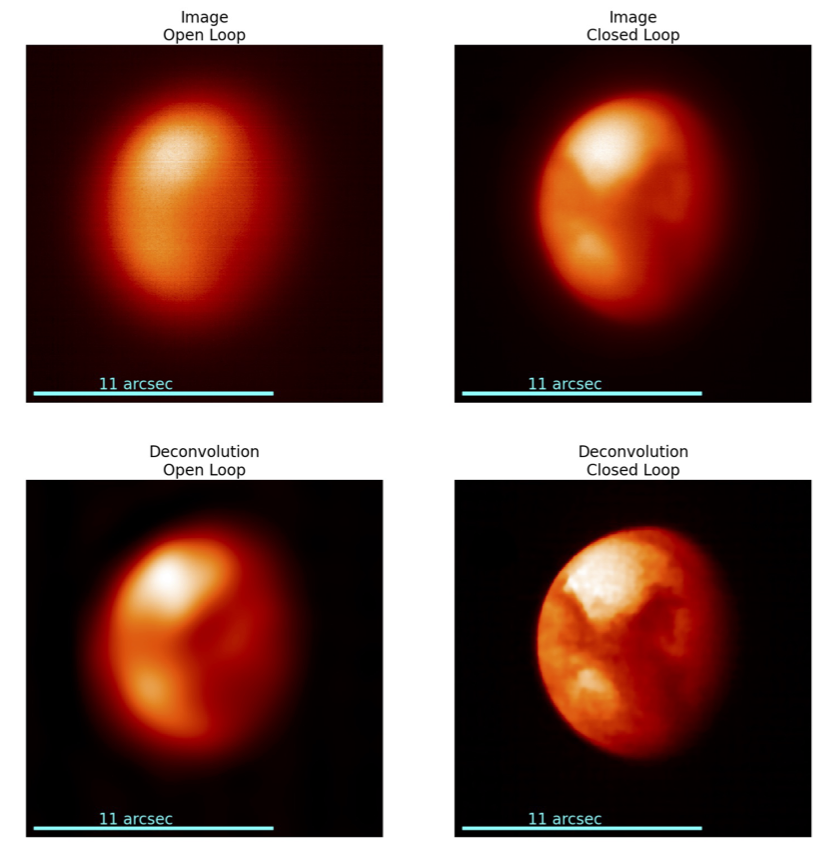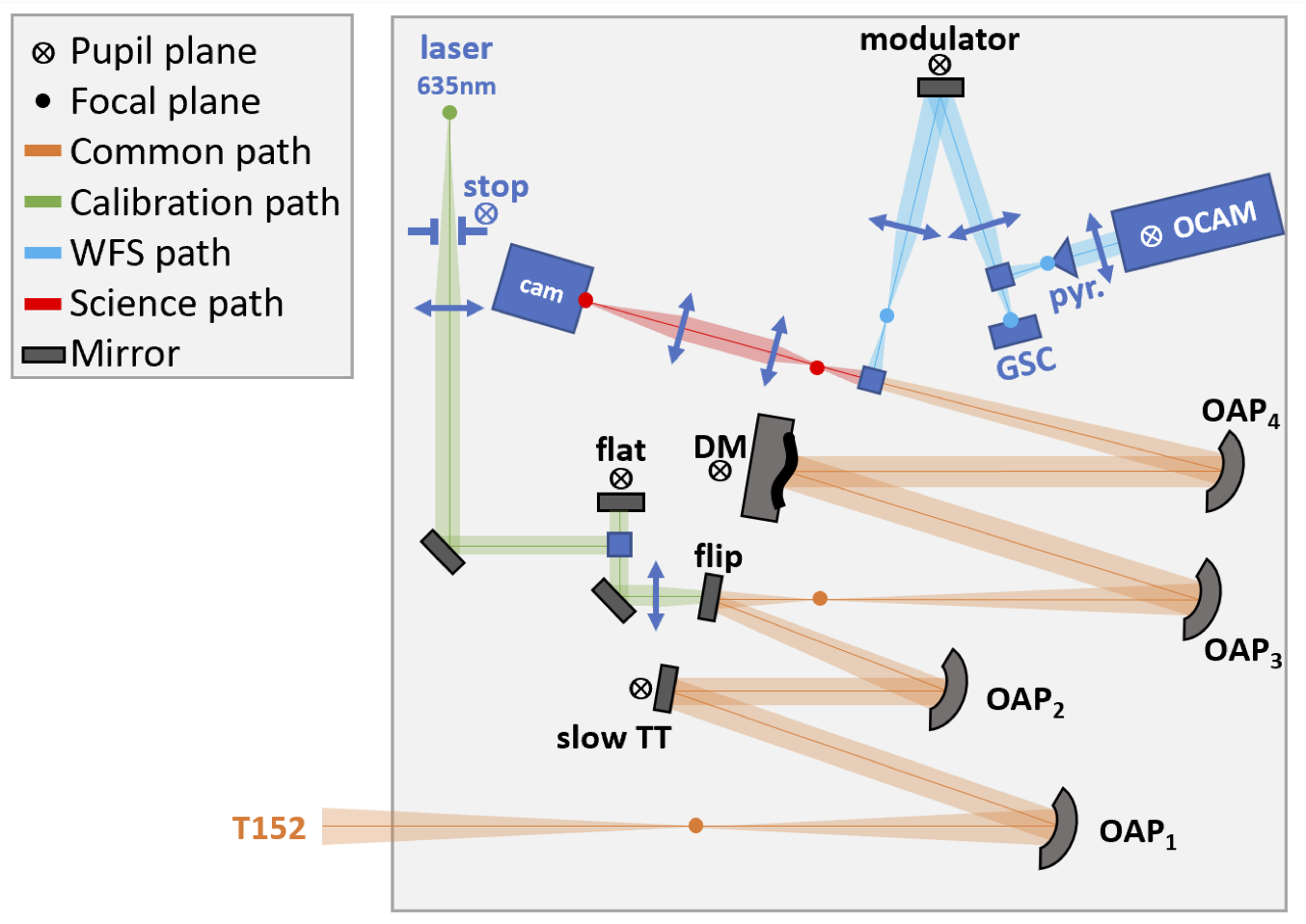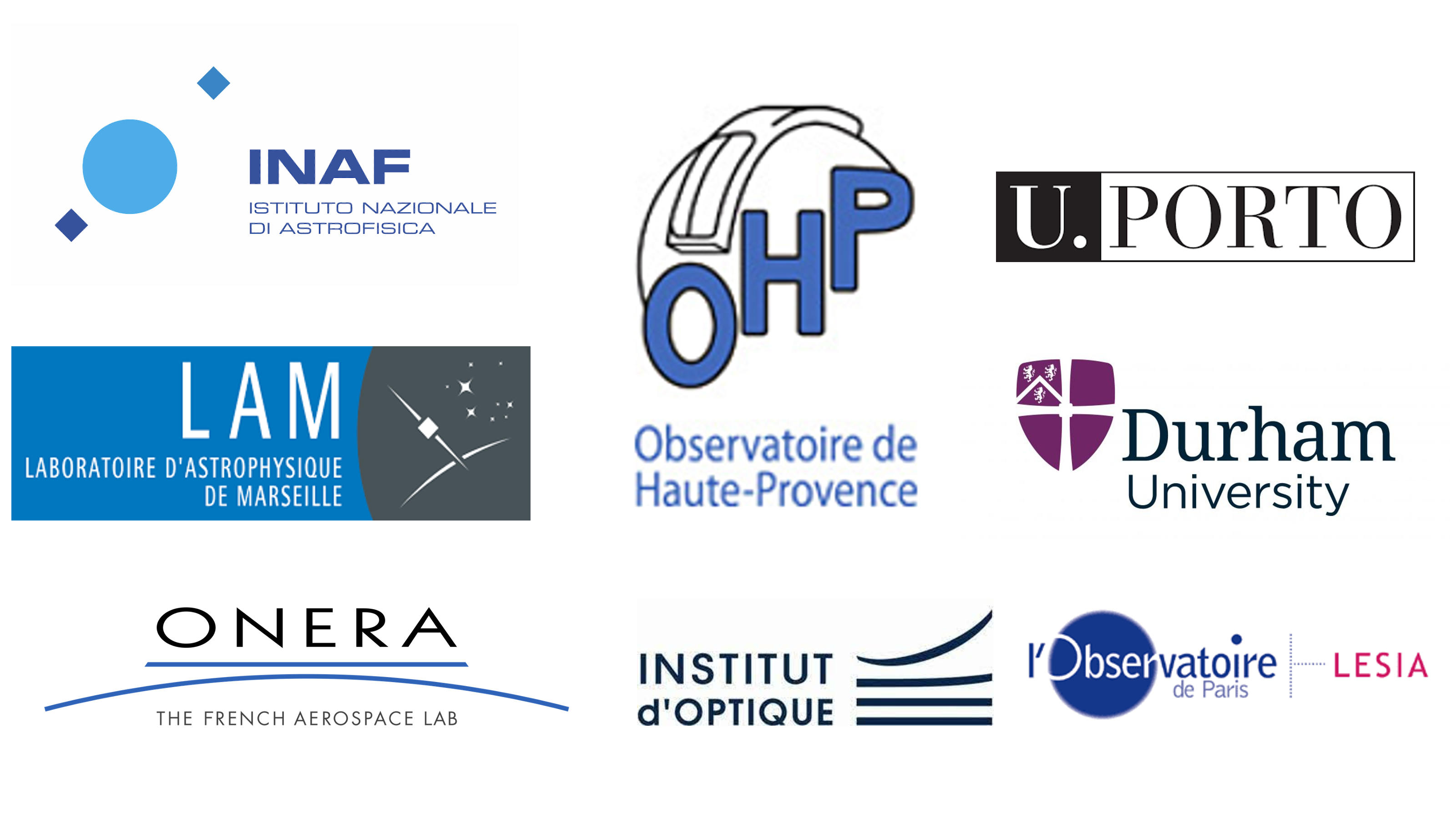ORP International School - Observing with Adaptive Optics
The ORP International school Observing with Adaptive Optics will take place at Observatoire de Haute Provence in France from 29th September to 4th October 2024.

During the school the students will use the PAPYRUS Adaptive Optics bench installed at the T152 telescope. The students will be involved in all phases of an adaptive-optics assisted astronomical observation. Frontal lessons on the fundamental topics of the discipline are planned, as well as tutoring sessions for the development of observation preparation and data analysis tools.

Observation of Mars with Papyrus on T152 telescope at OHP
Audience
The summer school is aimed at two audiences:
1) young astronomers who in their careers will primarily use adaptive optics-assisted instruments and are interested in understanding the strengths and limitations of adaptive optics instruments
2) young technologists who will develop the next generation adaptive optics systems and are interested in understanding how an adaptive astronomical observation is carried out, from preparation to data analysis.

Optical scheme of Papyrus
Topics
The tentative list of topics that will be addressed is the following:
- Imaging and IFU spectroscopy with an AO-assisted instrument
- Geometrical and diffractive optics for ground-based telescopes
- Image formation through the atmosphere
- Fundamentals of Control Theory for astronomical AO
- Wavefront sensing in AO for astronomy
- Wavefront reconstruction in AO for astronomy
- AO system design
- Image deconvolution in astronomy: PSF reconstruction, PSF modeling & fitting
- Beyond general-purpose AO or how to address the specific limitations of AO: High contrast / Wide field / Laser assisted AO
- Real life examples of AO-assisted instrument development
Cost and accomodation
The students will be hosted at OHP. The number of students will be limited to about 25.
Apart from travel to/from Marseille, all other expenses will be covered by the organization. The organization provides bus from Marseille station and/or airport the day of arrival and departure
Important dates
- 15 Mar 2024 - Registration Open
- 1 May 2024 - Registration closed
- 15 May 2024 - Registration confirmation
- 29 Sep - 4 Oct - School
Supported by


